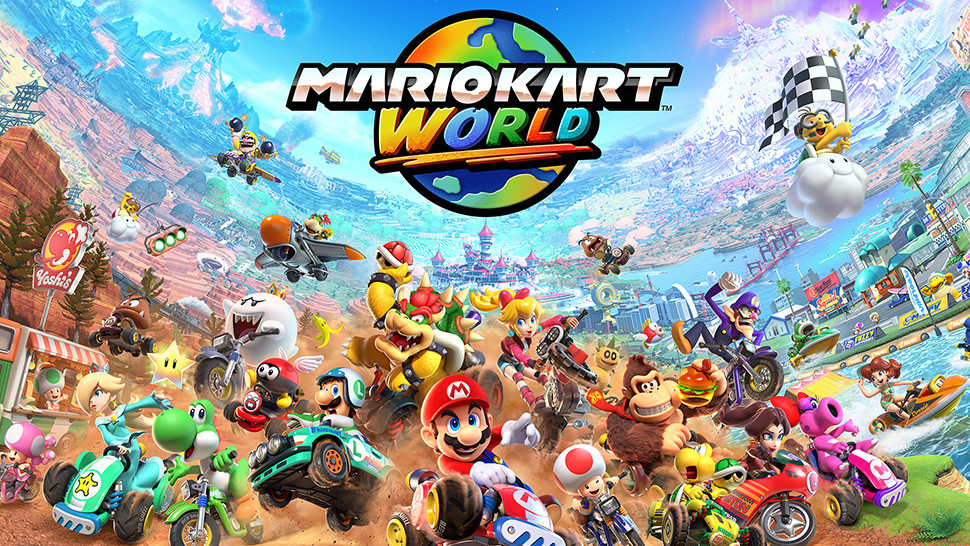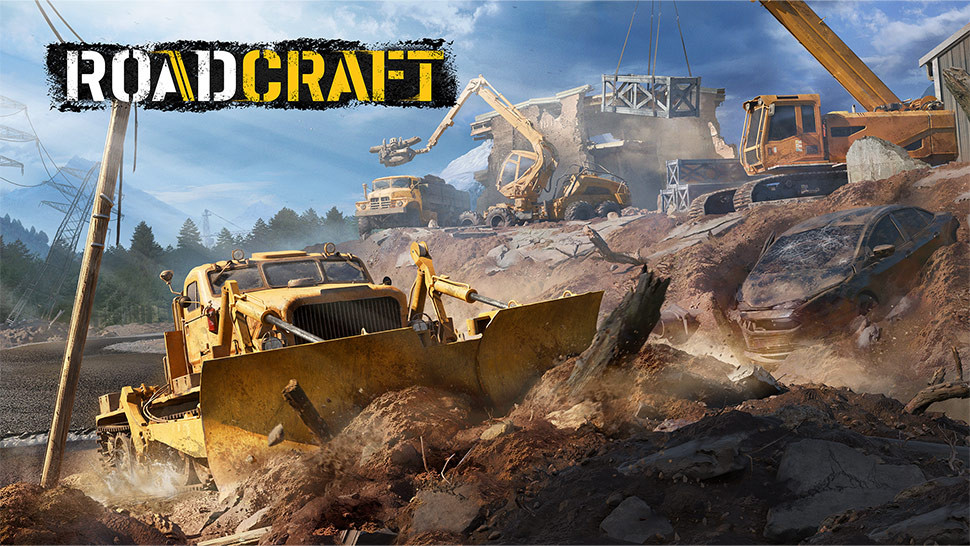Judgment Review

 By Kevin Mitchell | Jun 21, 2019
By Kevin Mitchell | Jun 21, 2019
With longtime Yakuza series protagonist Kazuma Kiryu's narrative coming to a satisfying and emotional conclusion in Yakuza 6: The Song of Life, it is only fitting for Ryu Ga Gotoku Studio to continue building upon the world of Kamurocho. The fictional red-light district of Tokyo never sleeps, and although you don't find yourself caught in the middle of warring Yakuza clans, a serial murderer haunts the streets and alleyways of the city, gouging the eyes out of people. As private investigator Takayuki Yagami, a former defense attorney only three years prior, you'll use your talents to uncover the secrets of the city and, of course, face off against groups of thugs and Yakuza alike openly in the streets.
Yagami's interest in the gruesome murders of Yakuza members is directly tied to his previous law firm, which requested his natural talents as a detective to get their client cleared of murder accusations. The issue becomes complicated, as the defendant is none other than a Tojo Clan (Matsugane Family) captain, one with whom Yagami has a history. It's not long before you'll question the true motives of the murderer and find yourself risking your life and those around you to uncover the truth. As it was with Kiryu, when dealing with Yakuza, nothing is as simple as it seems.
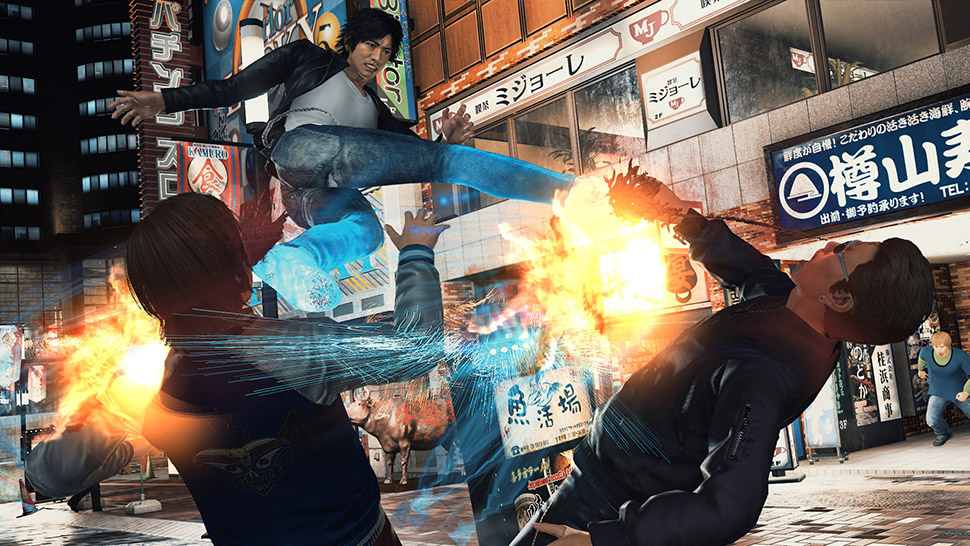
Although a spin-off title, much of Judgment should be familiar to those who have played the original Yakuza releases or the fantastic recent releases that have certainly revitalized the franchise, especially in the West. You'll be exploring a version of Kamurocho, a dangerous sprawling urban landscape that feels familiar, yet different at the same time. Judgment is the third game to be released using Ryu Ga Gotoku Studio's impressive Dragon Engine. Being able to walk in and out of shops and other landmarks and even engaging in street brawls without loading is a phenomenal sensation. Yes, environmental objects tend to fly around when you run into them, and you'll always be bumping into non-playable characters (NPCs) frequently, but the immersion from completing multiple interactions without a single load is quite liberating.
While roaming through the streets of Kamurocho, Yagami finds himself at war with various gangs, Yakuza families, and others that may impede his investigations. There are two key combat styles for Yagami to use: crane and tiger. At any point during a fight, you can switch between the two. Each of the combat styles has its strengths, with one being the better option when facing a group of enemies, and the other better suited towards one-on-one encounters, such as when battling boss-type characters. Just like Kiryu's flashy heat maneuvers, you'll charge a unique gauge—in this case, it is labeled EX. Doing so allows you to trigger special moves that not only cause massive damage to your foes but utilize a wide range of wrestling moves, weapons, and interactions with the environment. Even the locals join in once you start to raise your reputation around town. I never like to spoil the more unique moves in these games, but trust me, you want to ensure you pull off an EX move near a koi pond. Overall, you'll feel a bit more mobile and agile in Judgment, performing flying attacks by running up and leaping off walls, and more.
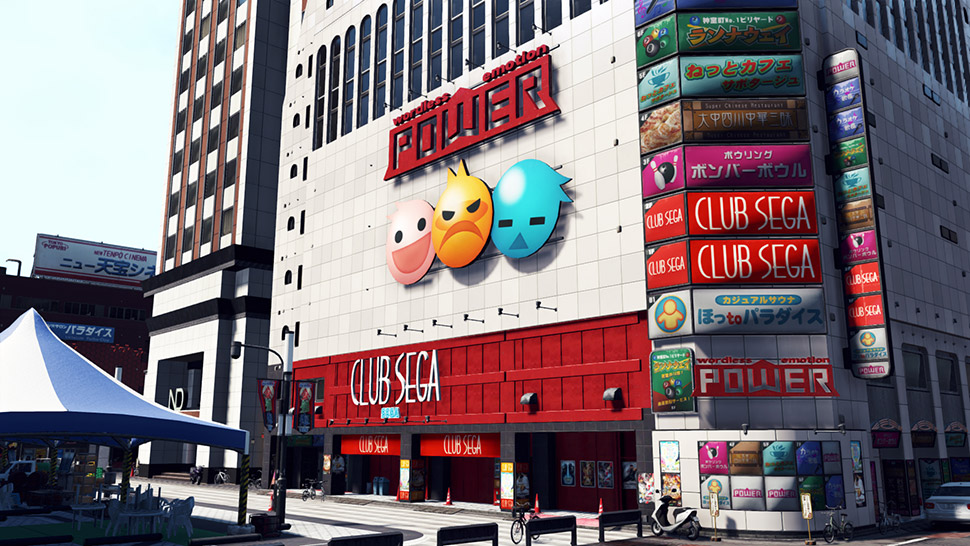
As the game is considered a role-playing game (RPG), you'll find Yagami a tad on the weaker side when you first start playing, especially on the higher difficulties. Thankfully, the upgrade system has been streamlined to feature a single skill-point currency that is used for all types of upgrades, such as learning new combos and techniques, increasing your health, and more. Certain upgrades remain locked until you reach specific points in the narrative. Fighting is the easiest and most common way to earn skill points, so you'll want to keep the number of times you run away to a bare minimum. Side missions are a good source of skill points, and if you enjoyed the wacky side stories in Yakuza, you'll feel right at home with Judgment. The side cases that you can take are not only enjoyable but come in many different flavors, with the ones that are genuinely outrageous standing out from the rest. While the main story keeps you grounded, this is where the game truly shines in terms of stylistic characters and, at times, some truly zany narrative set pieces. What is Yagami doing right now? Oh nothing, just chasing down a sentient wig flying through the streets at night, using a GPS tracker to stop a mad panty thief, or investigating a haunted apartment. The side cases aren't found by roaming through the streets like in previous games; instead, you'll acquire them from your notice board and friends that you'll make during your time with the game.
Judgment wouldn't be much of a crime drama if Yagami didn't spend his time properly investigating crime scenes. When entering these specialized areas, the game switches from the traditional third-person perspective to a more inviting first-person view, allowing you to search for clues and other pertinent details. Don't forget to locate the annoyingly vocal, meowing cat in these scenes before completing your investigations if you want to be thorough. At times you'll have to move around to find the proper locations to search, and at others, you'll be set in a specific spot, only able to shift your viewpoint. Zooming in does help, as well as having the controller rumble when hovering over hidden areas during search mode (it's a purchased special skill).
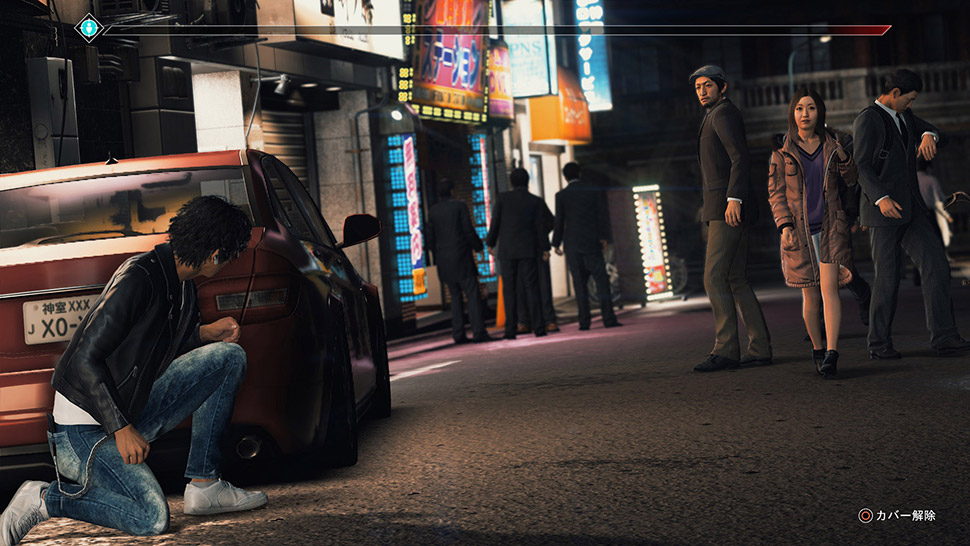
Besides testing his eyesight in finding clues and his fighting merit, you'll be tasked with tailing and chasing potential perps. Chase sequences are a bit more exciting, requiring you to avoid obstacles and pedestrians by weaving your way around and over anything in your path using quick-time event button prompts. If you lose sight of your target by failing to avoid the obstacles, you'll have to restart. Tailing scenarios have a similar fail state if you lose sight of your target for too long. They also feature a visibility mechanic, forcing you to hide behind cars, signs, and buildings when your mark (the target) turns around. It can be a bit repetitive and isn't overly complicated, as the target quickly forgets they even saw you and continues on their way. Things become a bit more exciting when you get to use a drone to snap photos and keep yourself hidden out of sight, not to mention participate in the drone racing league.
Some side missions aren't available until certain conditions are met, such as raising your reputation with the locals. As I already mentioned, these feature the same goofiness and absurdity that fans have loved over the years. Most cases aren't overly long, but not all of them feature fighting. Restaurants and cafes serve as a way to instantly replenish your health, besides purchasing items that you can use in and out of battle. The more you purchase, the higher your rating with that particular place and employee. Playing on the lower difficulties, you'll hardly take any damage, and you are unable to eat or drink anything if you are at full health. This essentially means you won't grow your relationships at any point in the game unless, of course, you let enemies punch Yagami directly in his face on purpose.
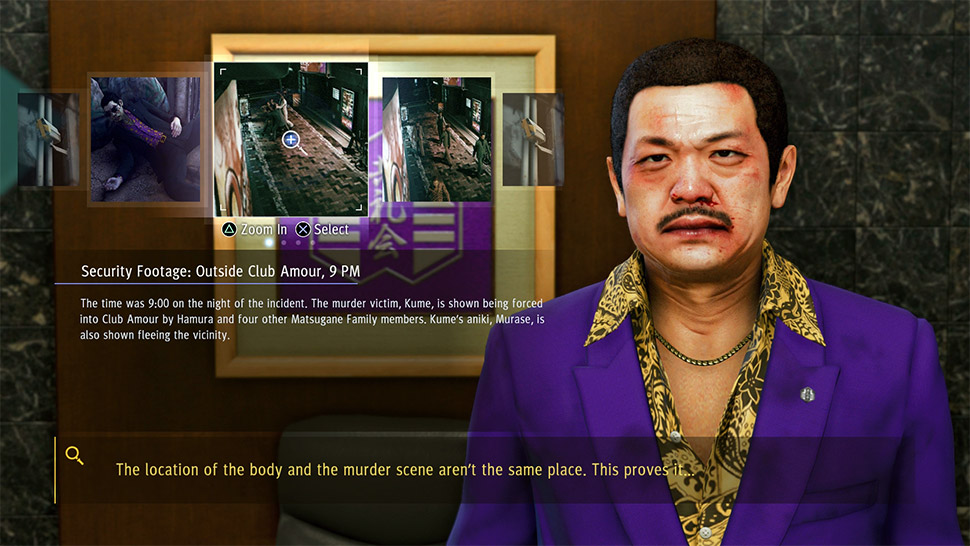
Kamurocho feels familiar, especially since I've reviewed the four recent Yakuza releases within the past couple of years. With that said, most of the other titles feature multiple locales to explore, even if brief, but Judgment takes place entirely in Kamurocho, except for a small section. I was disappointed that it is the only location, but it is such a fantastic place to explore. During the first couple of chapters, the city felt less impressive and less alive, but it was due to the game slowly opening up different aspects, turning Kamurocho into a bustling district brimming with life. Afterward, you'll have so many different places to explore, such as Sega arcades full of classic titles, UFO catchers, and even a new shooter harking back to Sega's classic arcade series The House of the Dead. There is also a playable pinball machine tucked away in your office built with the Unity engine. Eventually, you'll be able to ask the women in Yagami's life out on dates, building upon their relationships, serving as a replacement for the host club interactions from the mainline Yakuza titles.
Simply Put
Judgment proves that Ryu Ga Gotoku Studio's gameplay approach works with a new set of realized and charismatic characters. While it was a shame to see Kiryu's journey come to an end last year, Yagami and his former Yakuza buddy Kaito may be my new favorite duo. The narrative is highly engaging, and whether you use the Japanese or the English voices, the performances are outstanding. There is so much to see and accomplish between main story missions that it is hard to list even a small portion of what you can do.
Note: Judgment was reviewed on PlayStation 4. A digital copy of the game was provided by the publisher/developer.
